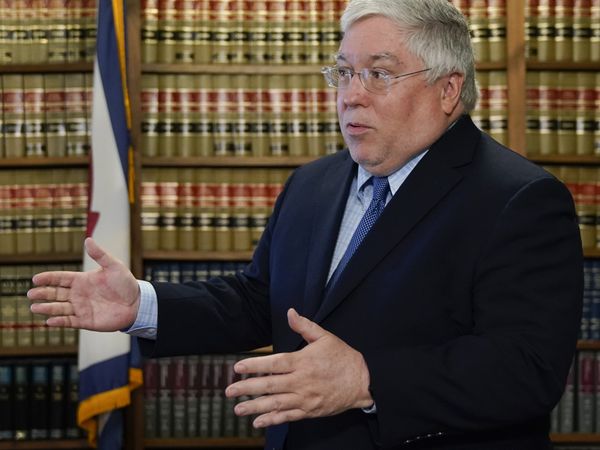
It is a truth universally acknowledged that no amount of spin and photo-ops can substitute long term for performance and achievement. But it’s a truth that seemed to elude the recently departed prime ministers of the United Kingdom and Australia.
Although Bernard Keane has cautioned in Crikey that parallels between Boris Johnson and Scott Morrison can be overplayed, both men represent a broader malaise among many politicians, business leaders and other celebrities (and their PR advisers): namely the misconception that the truth can somehow be avoided by spin and shameless mendacity, and that the public will be endlessly taken in by silly publicity stunts.
Of course, there is a legitimate place for well-planned and relevant photo-ops, such as Anthony Albanese and a host of other national leaders seen among the bombed rumble of Ukraine. And every election seems to demand photos of politicians in hi-vis and hard hats, or kissing babies, or cuddling koalas.
However, these things will take you only so far. It’s true that some celebrities manage to sustain an entire career with no more than an endless flow of clickbait photos and reality TV — think no further than most of the deplorable Kardashians.
But for politicians and business leaders, the spin and hype must eventually be complemented by actions and policies of genuine substance.
It can take a while for the reality to play out, and as a result, some politicians seem to temporarily sustain a persona based on publicity stunts and provocative, dial-a-quote comments on every conceivable topic. Think of Barnaby Joyce, or Bob Katter, or maybe even Pauline Hanson. Their electorates might like the local member, and lazy journalists like a predictable source to generate controversy.
Yet Johnson and Morrison have shown that it’s not enough in the end.
The notion that “all publicity is good publicity” was championed by PT Barnum in the late 19th century, and has been turbocharged in recent times by the rise of social media and D-List “media personalities”, “reality stars” and “TikTok influencers”.
But the downside of “too much publicity” is brutally illustrated by Pete Evans, the TV cook turned conspiracist, or Johnny Depp, the Hollywood actor turned walking headline. Similarly, in the business world, Elon Musk’s unquenchable thirst for self-promotion and unpredictability might satisfy his ego, but also creates market instability and needless cost to his long-suffering investors.
It’s not just the pressure of 24/7 media and the supposedly reduced attention span of the public. Professional communicators and other assorted PR people need to take some of the blame for encouraging this downward slide. For example, who was it who advised Johnson to deny, then partially concede the existence of, and finally apologise for, partygate? And who persuaded Morrison to do that super-creepy election stunt washing someone’s hair at a beauty salon?
In most cases, we’re not likely to ever know. (Though it is reported the PR staffer who warned Prince Andrew against his astonishingly ill-advised TV interview about Jeffrey Epstein resigned in protest.) But that’s an exception. Too many seem to go along with the idea that all publicity really is good publicity.
Around the same time that PT Barnum was barnstorming the world, Oscar Wilde said: “There is only one thing in life worse than being talked about, and that is not being talked about.”
But politicians and former prime ministers need to remember that Wilde was a satirist wit, not giving modern-day political advice.







